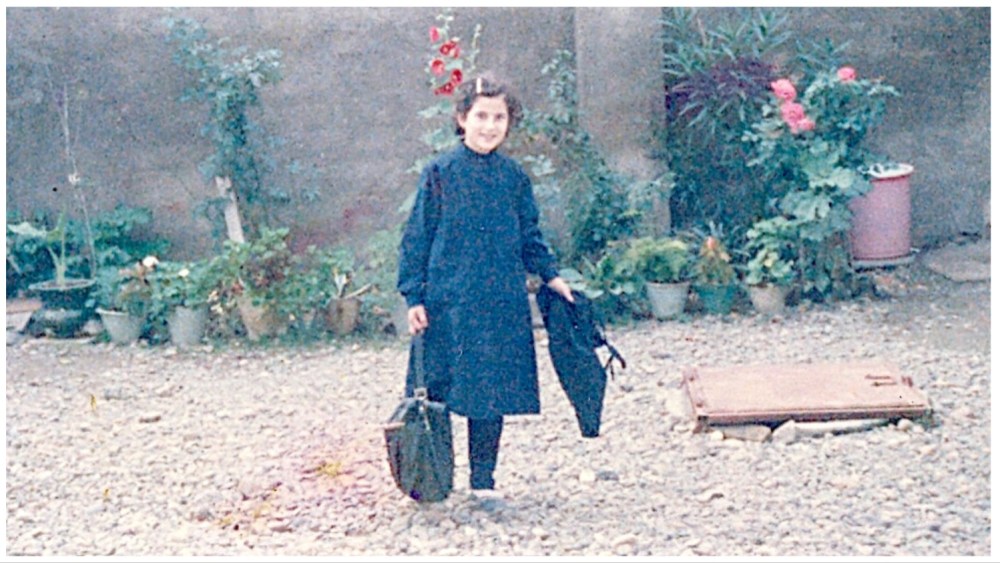‘My Stolen Planet’ Wins Thessaloniki Documentary Festival
Iranian filmmaker Farahnaz Sharifi‘s “My Stolen Planet,” an intimate family portrait of life during Iran’s 1979 Islamic revolution, won the Golden Alexander at the Thessaloniki Documentary Festival on Sunday, bringing a close to an emotional and politically charged week in Greece’s second city.
Using both the director’s personal archives and 8mm recordings of strangers’ lives, the film — which world premiered in the Berlin Film Festival’s Panorama strand — uses an essayistic style to present the joy and vitality of life in Tehran in the 1970s, in contrast with the oppression imposed on the Iranian people by the country’s hardline regime.
The Silver Alexander award went to Lidia Duda’s documentary “Forest,” which premiered in Thessaloniki. The film focuses on a Polish family living next to the oldest forest in Europe, trying to create a safe haven for their children, until they begin to notice refugees stranded in the wilderness, unwelcome both in Poland and neighboring Belarus.
A Jury Special Mention went to “Stray Bodies,” from Greek filmmaker Elina Psykou, which sparked a firestorm of protest in Greece ahead of its premiere. The film follows the lengths that women in Europe must go to access medical procedures that are outlawed in their own countries.
The ceremony brought a close to a turbulent week in Thessaloniki, one year after a deadly rail accident that claimed 57 lives also rattled the Greek doc fest. This year’s edition began with protesters disrupting the festival’s opening night to call for an end to Israel’s war in Gaza. Those calls were repeated at dozens of screenings and industry events throughout the week, with many filmmakers also gathering for a vigil to honor the more than 30,000 Palestinians who have died since the conflict began.
Festivalgoers were also galvanized by a horrific attack against a transgender couple on March 11, shocking attendees at an event that had a tribute to queer cinema as its focal point. The incident, in which a mob of close to 200 black-clad youths cursed, spat and threw bottles at the young couple in the city’s historic Aristotelous Square, sparked a protest that drew thousands into the streets of Thessaloniki.

Thousands rallied to protest in Thessaloniki after an attack on a transgender couple.
Courtesy of Christopher Vourlias
Festival leadership and many of the filmmakers in attendance stood in solidarity with the victims and highlighted the continued threats to Greece’s queer community, even as the country last month became the first Orthodox Christian nation to legalize same-sex marriage. Accepting an honorary Golden Alexander award this week, Greek filmmaker Panayotis Evangelidis — whose work has long focused on the visibility of the queer community — praised the progress his country had made in the fight for LGBTQ rights, while also lamenting last weekend’s transphobic attack, insisting that “reality calls for us to take a stand before evil knocks on our own door.”
Meanwhile, a separate controversy erupted amid protests from far-right groups over Psykou’s “Stray Bodies,” whose provocative poster — which features a bare-breasted pregnant woman nailed to a cross — was branded “blasphemous” by church officials and right-wing politicians in Greece. After threats to disrupt the film’s premiere, Thessaloniki officials banned all protests and deployed riot police outside the Olympion theater on opening night.
The premiere went off without a hitch, and an emotional Psykou was greeted with a lengthy and rousing ovation. The controversy surrounding the film, however, continued to rage on. Amid calls for the festival to ban displays of the movie’s poster, which one Orthodox leader called “deeply offensive to the religious feelings of the city’s Christians,” festival general director Elise Jalladeau penned a passionate response, defending a depiction that she said was “driven by the creator’s desire to record the agonies of people who suffer because their freedom is restricted.”

Elina Psykou’s “Stray Bodies” sparked protests from Greek religious and political leaders.
“Stray Bodies” (Thessaloniki Documentary Festival)
“As a woman, mother and worker, I see with concern that the world, in the year 2024, seems to be going backwards,” Jalladeau wrote. “Violence, attacks against women, femicides are constantly increasing. Attacks on the weak and different are also increasing. Just yesterday in Aristotelous Square, a stone’s throw from our festival headquarters, we saw with horror and indignation an immoral and violent attack against two transgender people, who were saved purely by luck. Authoritarian regimes that limit freedom, violate basic human rights and challenge the concept of democracy are also on the rise.
“Democracy is a wonderful institution that invites us to coexist with people who may have different views than ours,” she continued. “If these opinions do not preach hatred and do not call for illegal acts, if they do not threaten the fundamental principles of freedom and democracy and if they do not violate existing laws, then we must listen to them in the context of a society of acceptance and love.”
Here are the main winners of the 26th Thessaloniki Documentary Festival:
International Competition Awards
Golden Alexander: “My Stolen Planet,” by Farahnaz Sharifi
Silver Alexander: “Forest,” by Lidia Duda
Jury Special Mention: “Stray Bodies,” by Elina Psykou
Newcomers Competition Awards
Golden Alexander “Dimitri Eipides” Award: “Glass, My Unfulfilled Life,” by Rogier Kappers
Silver Alexander: “Fighting Demons With Dragons,” by Camilla Magid
Jury Special Mention: “Tack,” by Vania Turner
Film Forward Competition Awards
Golden Alexander: “Reas,” by Lola Arias
Silver Alexander: “Desire Lines,” by Jules Rosskam
Jury Special Mention: “Avant-Drag!,” by Fil Ieropoulos
FIPRESCI Awards
Best Documentary in the International Program: “My Stolen Planet,” by Farahnaz Sharifi
Best Greek Documentary in the Official Selection: “Tack,” by Vania Turner

